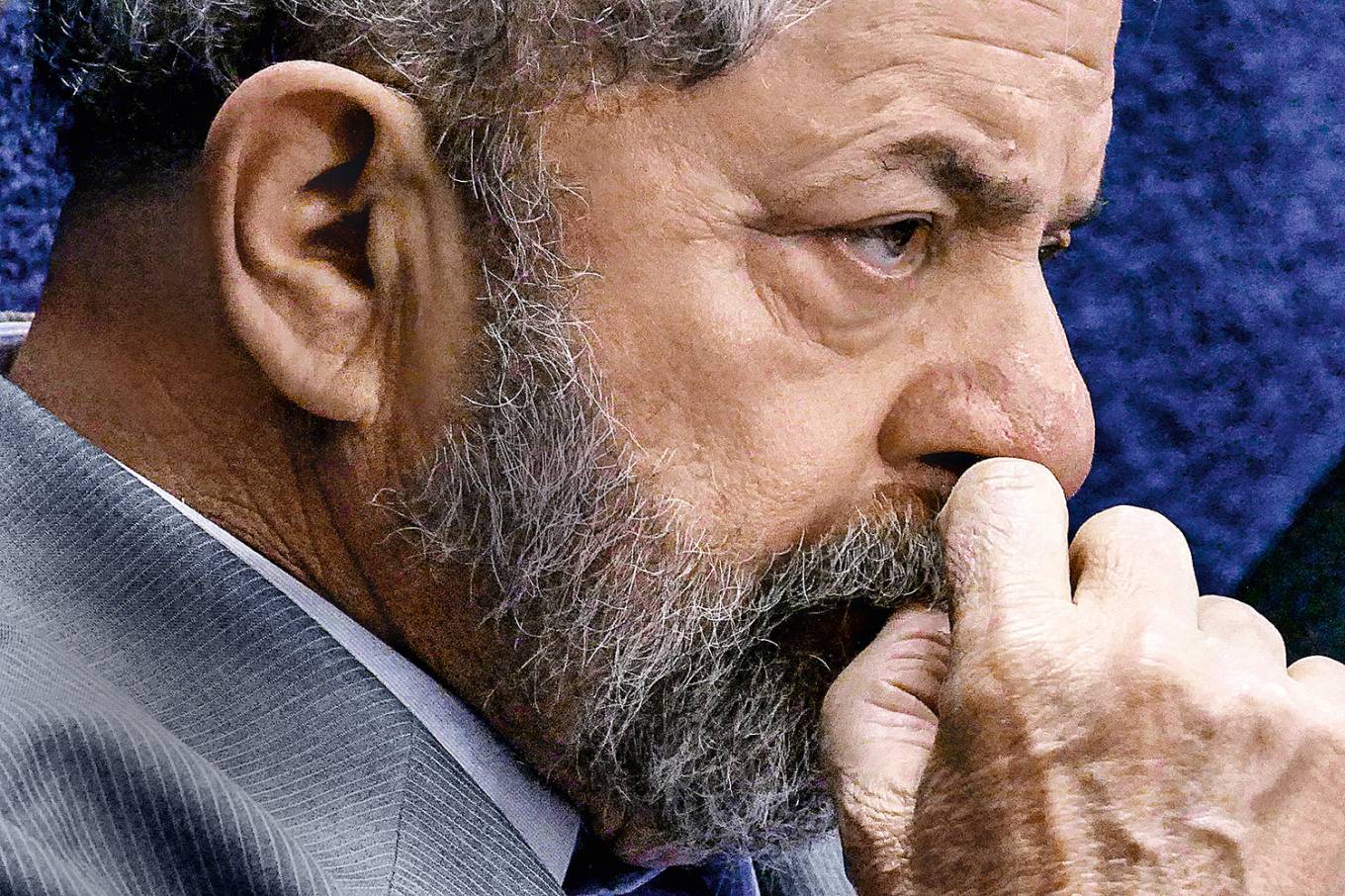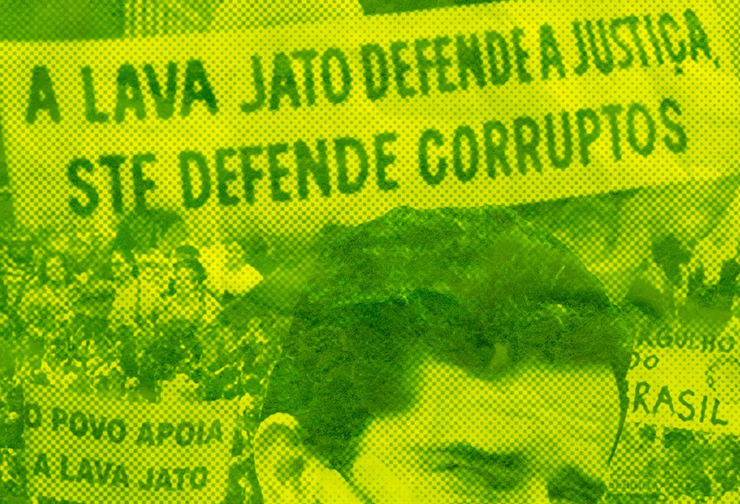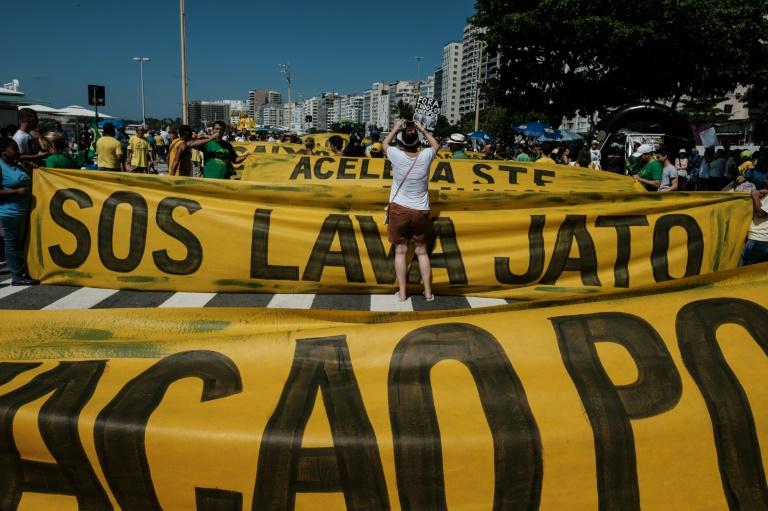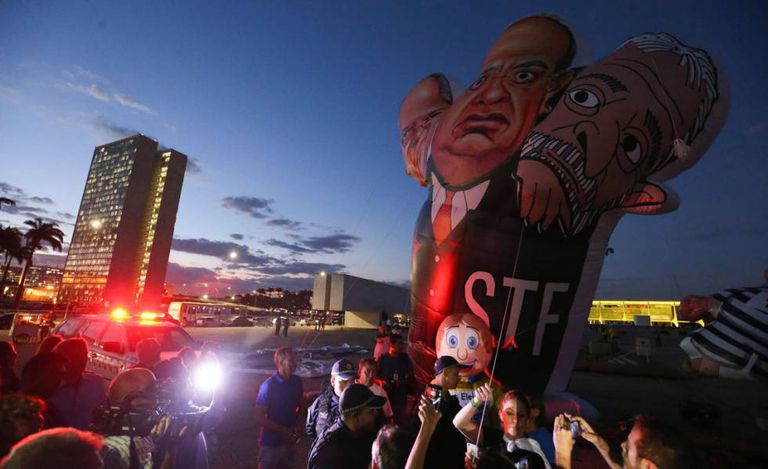By Daniel Lara Farías*
(Opinion) When Euzenando Azevedo was seated in front of a camera to confess everything he did as head of Odebrecht in Venezuela during the years he was in office, those of us who listened to him revealed the full extent of the scheme imposed through the company.
It was not just a simple denunciation to which the company’s executive took refuge, but a true revelation that confirmed the corrupt roots of the governments associated with the São Paulo Forum, with Lula da Silva as the top boss of the rotten strategy.
Read also: Check out our coverage on Lava Jato
Azevedo is not the biggest or the main one of those involved, but he is the most notable.

The reason is basic: Venezuela was the country in the world where Odebrecht had the most contracts and the largest amounts.
During the years of Chávez’s reign, with the oil barrel above one hundred dollars, the company was imposed as the maximum contractor for the works of the Chavista State, without any bidding or contest.
By manu militari, with the ever-present justification of the “interest of the State”, the company was the official constructor of public works, of any dimension and throughout the national territory.
From this point of view, we are already talking about corruption. Abuse of dominant position, influence peddling, and bribery.
The company’s selection did not respond to its capacities, which it had, but to the political decision made by Chávez following Lula da Silva’s guidance.
There was neither solidarity with a company nor political infatuation.
Both socialist leaders did not want to benefit a private company in any way.
The game was different.

What was sought and achieved was to use Odebrecht as a “B box” for financing political activities in the region, which would allow the rise to power of similar regimes.
A PERVERSE MECHANISM
The dynamic was corrupt and corrupting by any standards. In principle, Odebrecht was imposed as a contractor, to the detriment of other companies.
Thus began the irregularity from the public sector with private action, since to guarantee the silence of local companies harmed by Odebrecht, the giant Brazilian corporation bought off the locals by subcontracting them in the works.
In this way, Odebrecht guaranteed itself a contract, which it would charge at vile prices, while the works were actually carried out by companies that had failed to win the government’s favor for the award of the contract.
How did this scheme work and how did a company, by subcontracting to another, manage to make a profit on a contract with the State that normally takes a long time to pay?

Logically, the political collusion allowed this and more.
Because in the contract assignment, the overpricing and the punctual payment were guaranteed. Overpricing was used to carry out the work, pay the contractors, bribe politicians, and enrich Odebrecht along the way.
Complicity and silence were required. And everything could be bought.
Therefore, the most difficult part of the matter was achieved, which was to guarantee that the governments would award the contracts and that the opposition would remain silent.
It was necessary to stop any investigation, and it was also necessary to guarantee the stability of the contracts, and the continuity of the benefits in the face of any change of government.
The solution was simple: it was necessary to illegally finance the ruling party and the opposition parties.
To buy silence with money from overpricing, to grow unstoppably throughout the region, and to achieve what was fundamental: governments aligned with the São Paulo model.
Brazil, Venezuela, Dominican Republic, Argentina, Panama, Colombia, Guatemala, Peru, Ecuador, and Mexico stand out as part of the scheme.

The same rule was followed in all these countries: a corrupt government awarding overpriced contracts to a company that handed out money to the government and opposition politicians to guarantee impunity.
In many cases, the works were never completed. The payments, however, were made.
THE SÃO PAULO FORUM AS A GUIDE
The plan of some was to get rich, but the master plan, the main one, was to guarantee political control of the governments of the region.
The perversity of this plan is enormous, because under the guise of socialism for the redemption of the poor, public money was used to finance projects that were enemies of democracy.
Odebrecht cannot be explained without Lula da Silva, nor can Lula da Silva be explained without the São Paulo Forum.
Nor can the expansion of Chavism and its impunity in multilateral forums be explained without the corrupt scheme that allowed Chávez to stop any initiative in the OAS or the UN against him, even when governing parties that on paper appeared as enemies.
![Kick them all out [the left]. (Photo internet reproduction)](https://www.riotimesonline.com/wp-content/uploads/2022/09/Lava-Jato.jpg)
Reviewing the matter shows the damage caused. Lula da Silva and his family fell, as beneficiaries of the scheme.
Lula da Silva’s successor, Dilma Rousseff, was ousted amid an impeachment trial that left Maurice Temer in power, who was also later tried for corruption.
Half of Peru’s political class fell, with four presidents implicated, one of them dismissed, Pedro Pablo Kuczynski, another indicted along with his wife, Ollanta Humala, one under house arrest in the USA awaiting extradition, Alejandro Toledo, and the most tragic of all cases, that of Alan García Pérez, who committed suicide when the police arrived to arrest him at his home as a defendant in the case.
In Panama, the implication of Martinelli and his family went to court, with relative success for the politician who now aspires to return to power.
In Ecuador, on the other hand, the case put Rafael Correa and some of his collaborators on the run.
In Colombia, there was a final sentence against the close collaborators of Juan Manuel Santos. In the rest of the countries, there has been an investigation, trial, and conviction.
With only one exception: Venezuela.

THE VENEZUELA CASE
Obviously, in the kingdom of impunity guaranteed by Chavismo, there has been neither trial nor investigation in this country.
It could be more of the same, knowing the characteristics of Chavismo, but there are details of greater importance in all this.
First of all, Venezuela was the country with the second largest number of Odebrecht operations, after Brazil.
Then, the works contracted in Venezuela were part of the regime’s propaganda strategy, which presented the pharaonic proposals as part of the country’s development, which was never such.
Most of the works were not carried out but were paid for. Nobody denounced. And therein lies the success of the scheme.

A real and verifiable success, because despite the scandalous figures and the evidence of the works never completed, there was no opposition to denounce it. Why?
Because the payments and financing to that silent opposition were effective. The fundamental evidence is in the statement of Azevedo, the senior executive of the company in Venezuela.
In the same confession, he indicated that in effect he financed Maduro’s campaign in 2013 with 35 million dollars, but at the same time, he financed the campaign of the opposition candidate Henrique Capriles with more than 15 million dollars.
Likewise, he had already financed Capriles’ previous campaign against Chávez in 2012, and Capriles himself thanked his financing in a private meeting they both held in 2013 at the residence of the former opposition candidate, according to the confession of the executive.
The same with other political leaders, both from Chavismo and the opposition. Guaranteed silence.
If we look closely at the matter, it is clear then that the Chavista system with a criminal regime and a false opposition was possible under the corrupt scheme that, among others, granted Odebrecht.
But the practice is the same; in Venezuela, it is the law.
Using the power of the State to grant perks to businessmen, who in obligatory gratitude must finance the campaigns of the regime, and the way of life of its captains and at the same time guarantee with money the existence of an “opposition” that serves the system to maintain the set-up.
An almost perfect game, where socialism is imposed, expands and impunity is guaranteed through the money of corruption.
The problem is that we already know it.
That is why, despite the acquittal sentences, Lula da Silva and his followers are condemned by history as the heads of the most damaging corruption mechanism that could have been devised, to guarantee the expansion of the São Paulo Forum.
And to guarantee that until the end of time, Ibero-American socialism will be synonymous with corruption and impunity.
* Journalist by vocation. Although his academic background includes his studies at the School of International Studies of the Universidad Central de Venezuela, where he graduated in 2002, he has dedicated the last decade to intense activity in the media inside and outside his country.
Dedicated to politics, first as a social-democratic activist and then as an apostate of all left-wing tendencies, he has been a member of the Venezuelan media for the last ten years.

